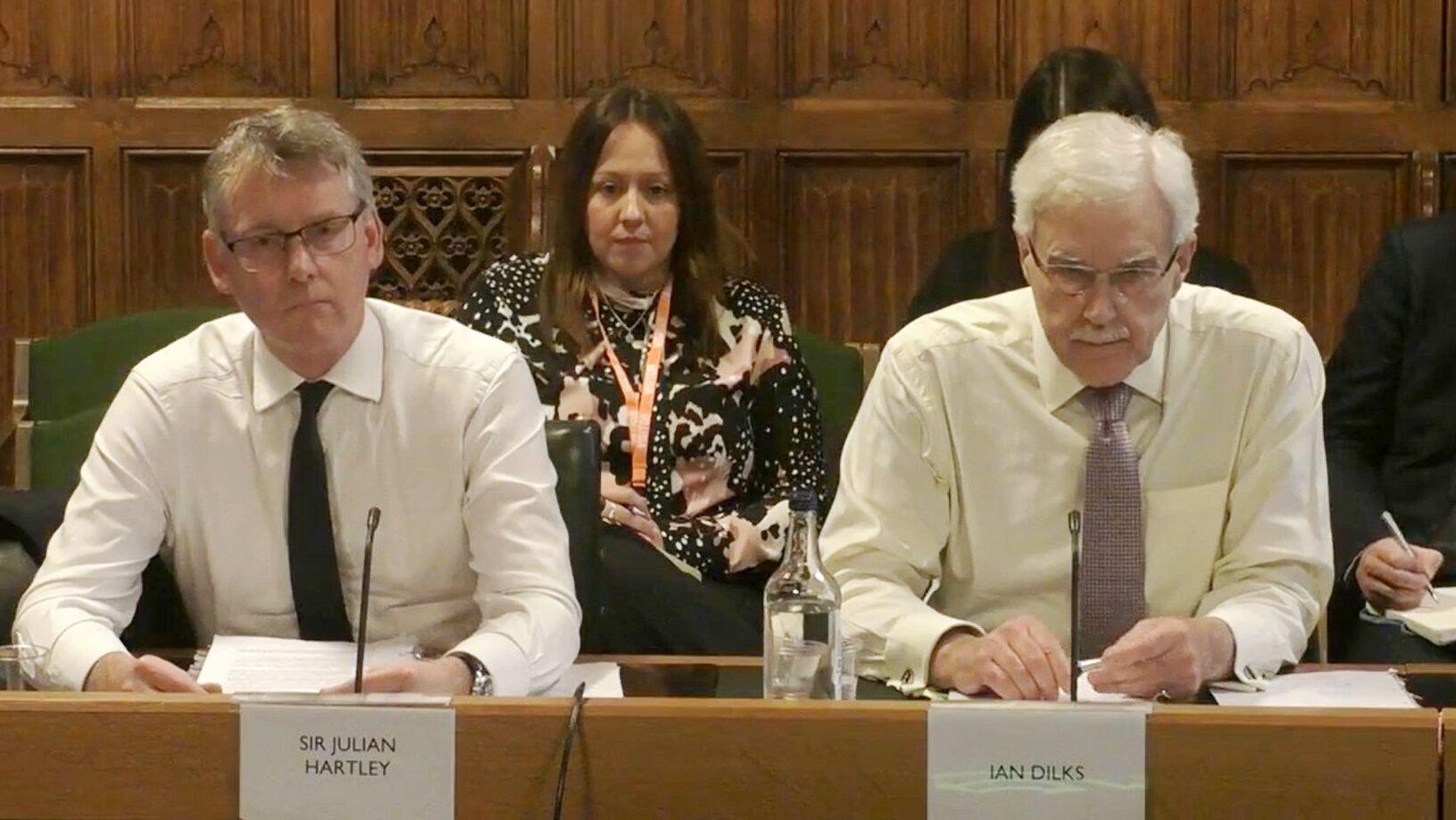How being active in MiP can help your career
The days of hostile bosses looking down their noses at active trade unionists are long gone – today’s MiP activists see real benefits for the NHS careers.
People used to think you had to choose between your career and being active in your union. The time involved and an often-hostile management made it difficult for union activists to excel in their day jobs. But in today’s NHS, with employers and unions working in partnership to manage change and improve services, being an activist can actually boost your career – giving you more influence, a bigger and better network and the skills to become a better manager.
“You’re operating on a totally different level to what you would be doing in the day job,” says MiP national committee member Jeremy Baskett, former relationship manager at Yorkshire and Humberside CSU. Being an MiP rep or link member gives you insight and knowledge that your colleagues will value, he explains. “Senior colleagues, even ones who weren’t MiP members, used to come to see me because they just wanted some advice. In the CSU, the managing director would ask ‘any views on what’s coming up?’. I’d never have been asked that normally. And that opened doors because when I had an issue I could go back and speak to them.”
Thinking differently Ian Haig: “You’re learning from managers who are in the same boat as you, and learning how to handle things differently.”
Ian Haig: “You’re learning from managers who are in the same boat as you, and learning how to handle things differently.”

Ian Haig, director of operations at London’s St Bartholomew’s Hospital, and a former national committee and MiP link member, finds that union work brings him into contact with parts of the NHS his day job doesn’t reach. “I’ve only worked in jobs in secondary care, but as a union rep I’ve worked with people in primary and community care, and Scottish representatives working in a completely different system,” Ian says. “It aids thinking about things differently.”
As an MiP rep, you can influence discussions at system level which you might not otherwise have got involved in. “You get linked into conversations around any changes which might affect senior managers,” says Sam Crane, head of urgent primary care and 111 at Aneurin Bevan University Health Board in Wales, and the current chair of MiP’s national committee. “I’ve been asked for advice on the impact for staff of structural change processes, and HR directors have actively invited me to give a first view or be involved with staff in shaping ring-fencing or displacement processes.”
Sam also meets Welsh Assembly members and Welsh Government ministers to press MiP’s case and discuss developments in NHS Wales. “None of that would have happened to me previously,” she says.
Zoeta Manning, commissioning manager at Birmingham South Central CCG and a former chair of MiP, finds being a union rep gives her access to many influential networks, inside and outside the NHS. “Today, I’m coming down to the TUC Women’s Conference and I’m chairing the Women into Leadership conference soon, which I would never have got to do if I wasn’t active in the union. I’m also working with the NHS Leadership Academy on improving BME leadership. I suppose people see I have a higher profile and they ask me to do things,” she says.
Professional development

As an activist focusing on learning and development, Ian Haig helped to organise MiP courses on presentational skills, problem solving and difficult conversations, among others. “Organising those courses involved another skill set and gave me a different point of view,” he says, “building up a network across different trusts, learning about trade union issues and what’s going on in other trusts, learning from managers who are in the same boat as you and how to handle things differently.”
Working with employers as a union rep also “gives you a different understanding of how the organisation thinks and the opportunity to try to find common ground, either with an individual or with an organisation,” Sam says. “You acquire negotiating skills, working with the directors to find the right solution. Before, I wouldn’t have been able to have that influence or develop those skills as much.”
“I did some training in negotiating skills when I became a link member and found it really useful in my day job as a commissioning manager,” adds Zoeta. “Especially as I didn’t get any training from the employer!”
Support from head office  Zoeta Manning: “I’ve acquired a reputation as someone who gets things done because of my union work.”
Zoeta Manning: “I’ve acquired a reputation as someone who gets things done because of my union work.”

MiP reps work closely with the full-time national officer for their region, who is always ready to give advice and take on more difficult cases. There is also plenty of support from chief executive Jon Restell and his team at head office, including training, advice and information, and help with publicity and communications.
“It was incredibly powerful, the way MiP supported me and got me involved in a lot of the national work,” says Jeremy Baskett. “I got a lot of insight and personal support from Jon and [national officer] Jane Carter. They included me in anything that was going on in CSUs and I became the CSU rep on the national committee.”
Sam Crane says the national committee has recently agreed a new ‘pathway’ for supporting and developing workplace reps, and is looking at ways to bring them together at regional level. “We’d like to get everyone together in one room every few months and ask them to share what they’ve been dealing with, how they’ve dealt with it and see whether we can share learning.” She also wants to introduce some “contact mentoring” for new reps, with coaching and advice from an experienced activist working nearby.
Where MiP has recognition agreements with employers, ‘facility time’ is available for MiP work, and most experienced reps manage to fit their union activity alongside their day jobs.
Sam says it’s important to know when to hand over work to the national officer. “It can take time to understand the issue, but you have to know where the boundaries are and make sure you don’t get into things that take up too much of your time or are beyond your expertise.”
“Time management is always an issue,” adds Zoeta. “But if someone needs a chat and I’m available, I’ll go and chat to them for half an hour. No one’s going to die, and that member of staff may feel they don’t have anyone else to talk to and might be quite distressed. I would say, look at the benefits for the organisation. It’s an investment in your staff.”
Huge job satisfaction
Jeremy Baskett, who led the union side in negotiations on the winding up of his CSU – with 1,200 jobs under threat – found senior managers highly supportive. “We had a whole year of turmoil and I was given more and more time to work on trade union issues because there was so much to do in the social partnership forum,” says Jeremy. “I got support from both the trade unions and senior management at NHS England. The experience was hugely beneficial and the job satisfaction I got from it was huge.”
“A lot of people think they’re going to be victimised for speaking up for their colleagues, but I’ve only even heard of that happening twice in my whole career,” adds Sam. “You have to be careful when there’s a conflict – such as your own manager being involved – but you just flag up the issue and hand it over to your national officer.”
Related News
-

Regulating the managers: more questions than answers
The Labour government’s plans for regulating NHS managers are still shrouded in mystery, and the three options on the table each have their pros and cons. Rhys McKenzie weighs up the choices and gauges the views of MiP members on the best way forward.
-

The inspector falls: why the CQC needs a fresh start
After years of chaos, the Care Quality Commission urgently needs to rebuild trust and credibility with the public and the services it regulates. What needs to change and what are the priorities for new boss Sir Julian Hartley? Alison Moore reports.
-

Voice, value and vision: what analysts need from the NHS
Data analysts play a vital role in an NHS which is increasingly data-driven and focused on public health trends. But the NHS faces fierce competition for skilled analysts and many feel the health service fails to value them or fully use their talents. Alison Moore reports.